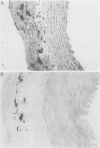Full text
PDF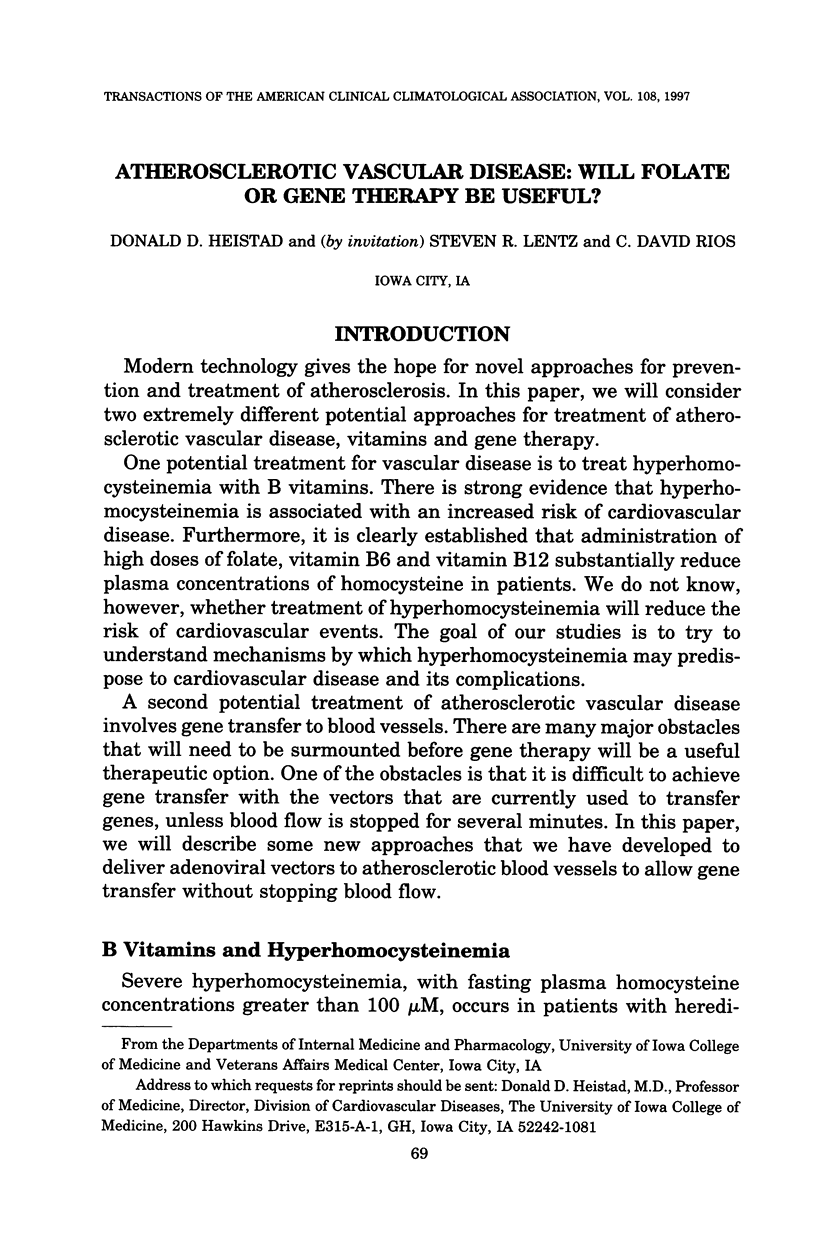
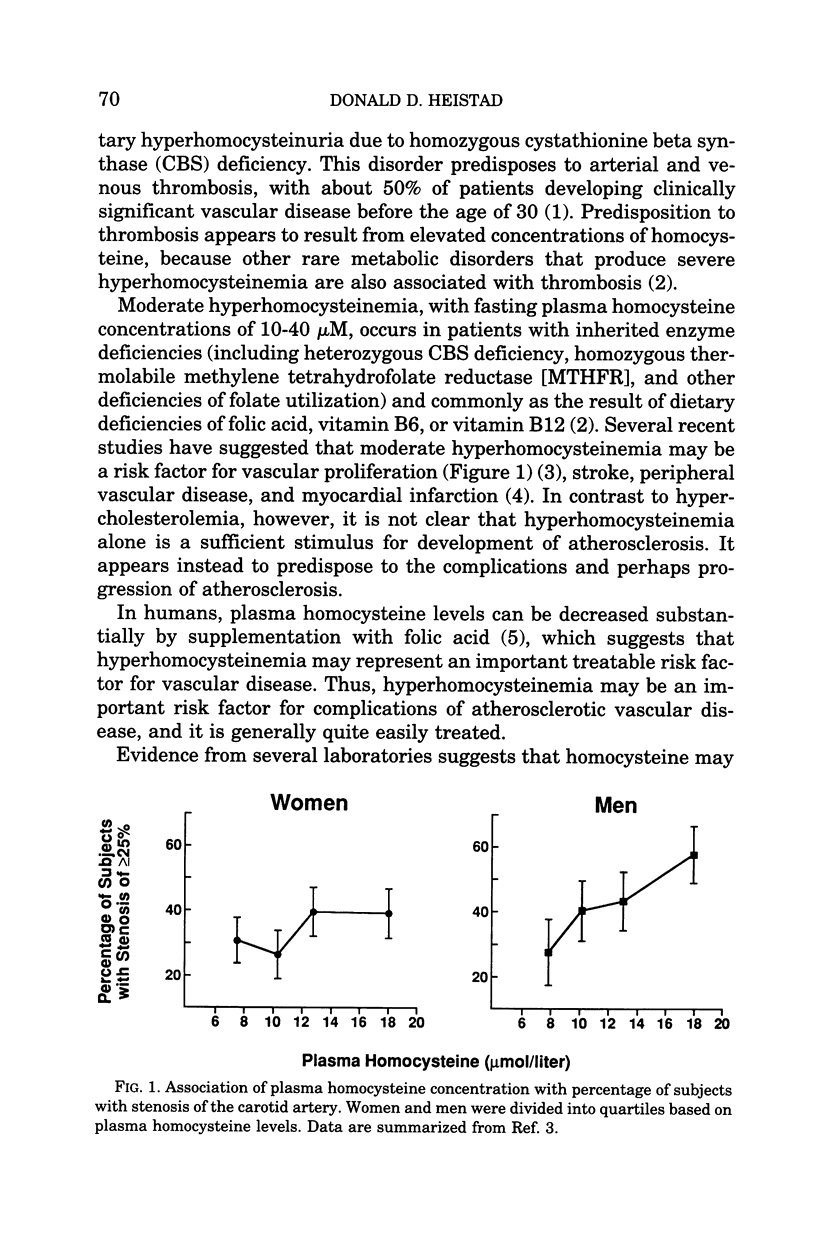
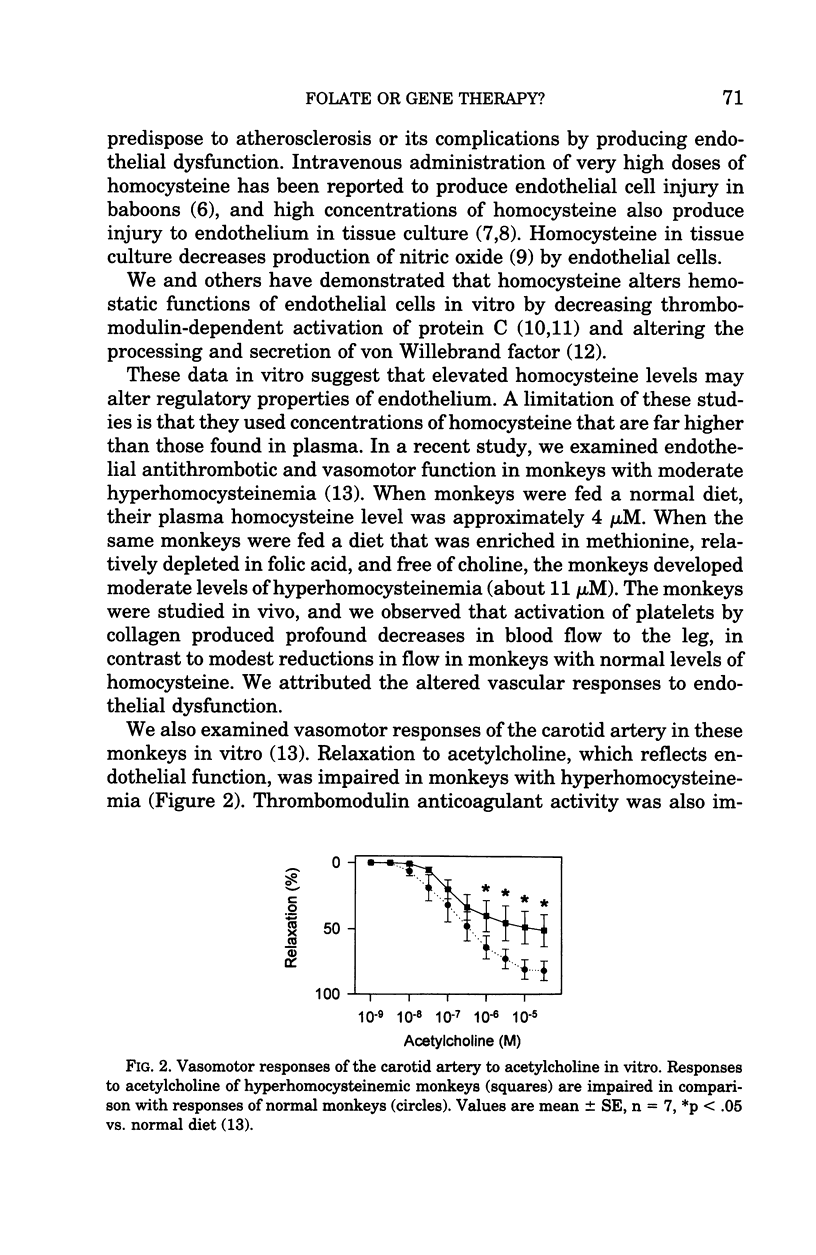
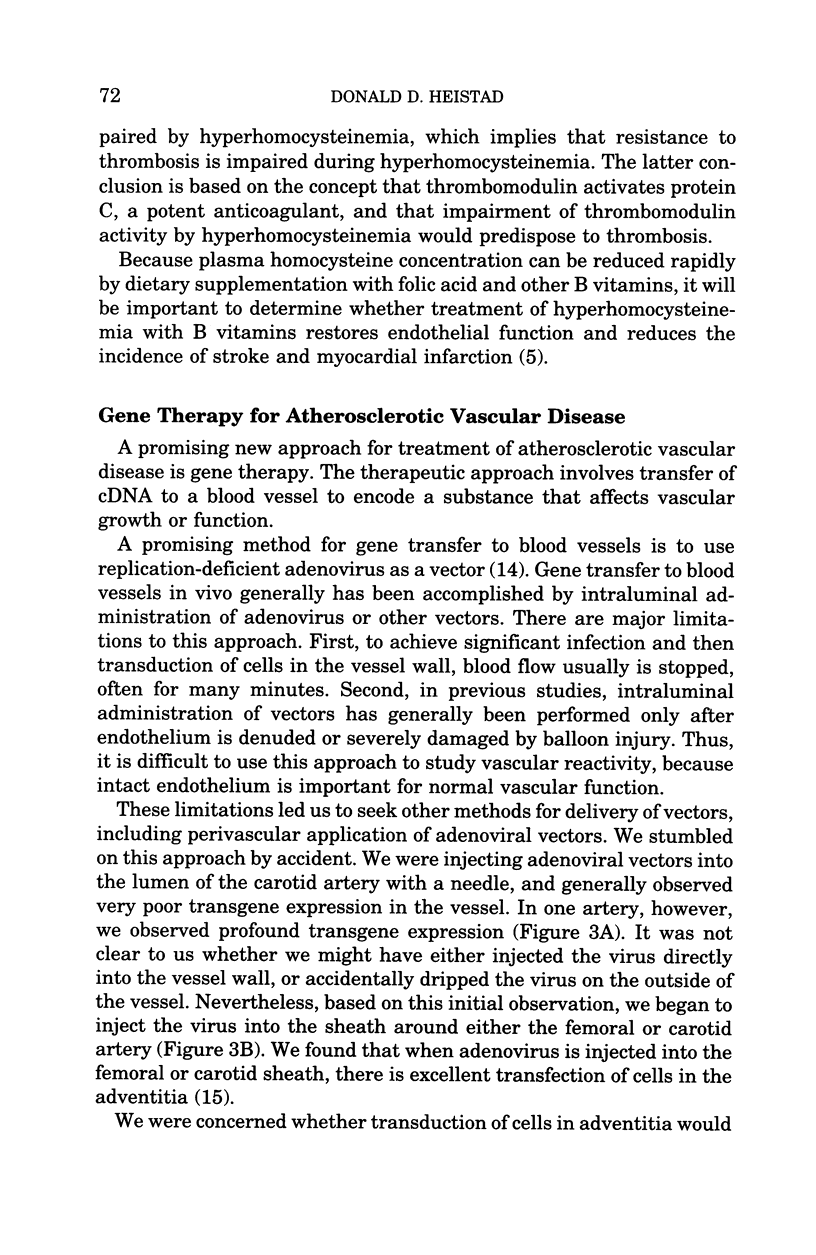
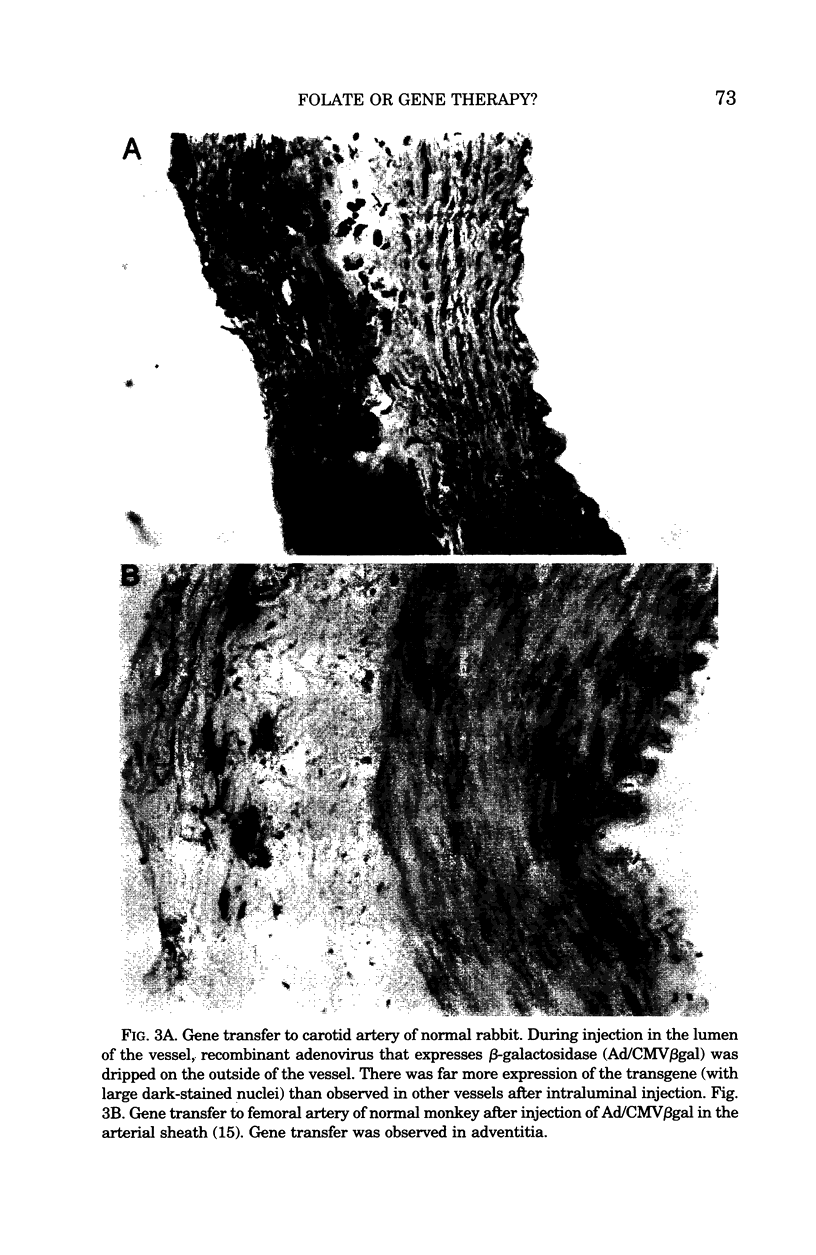
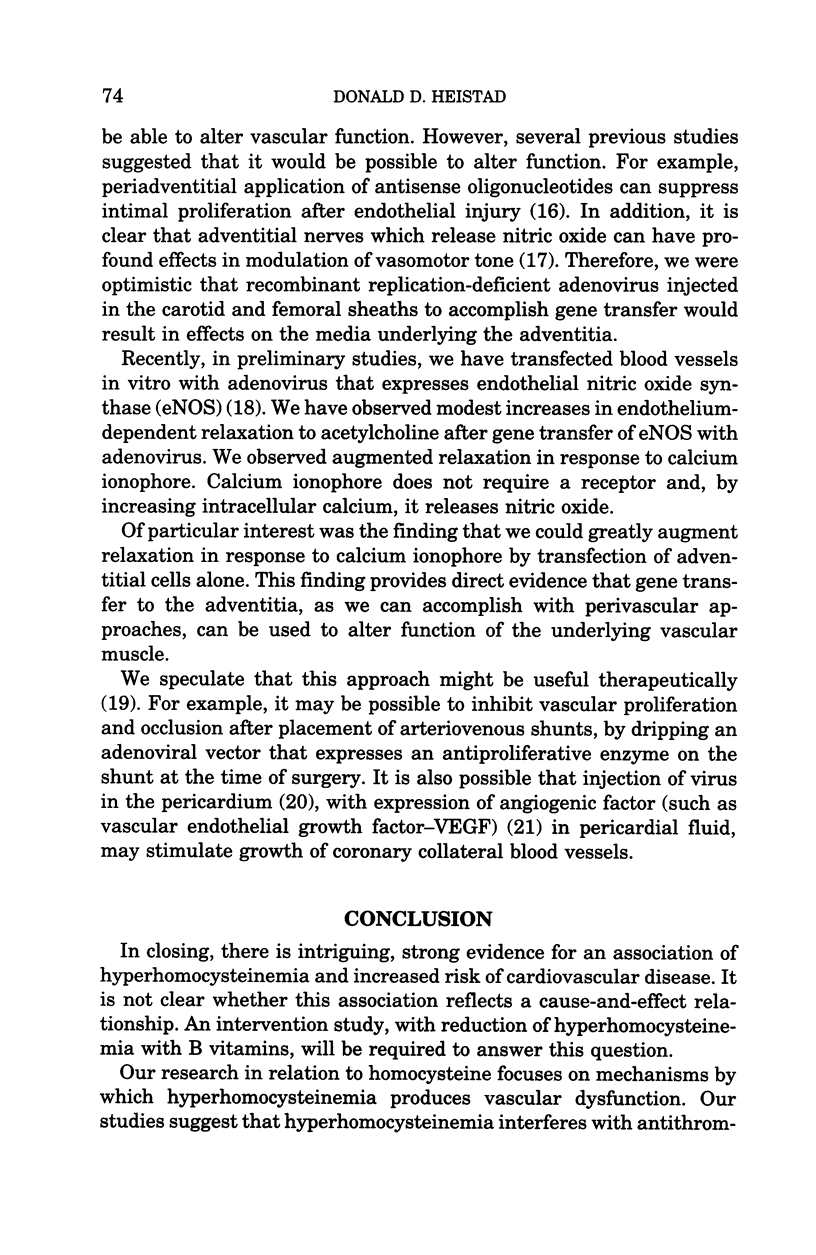
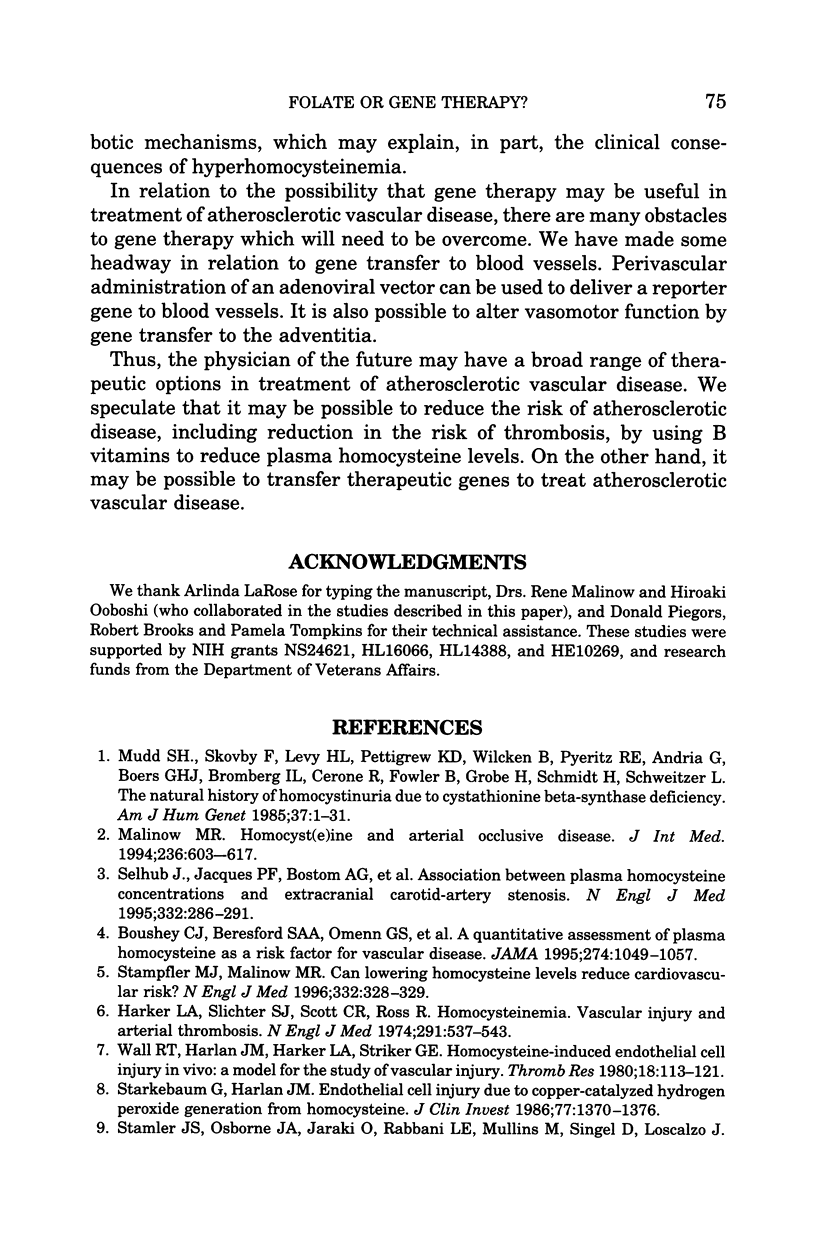
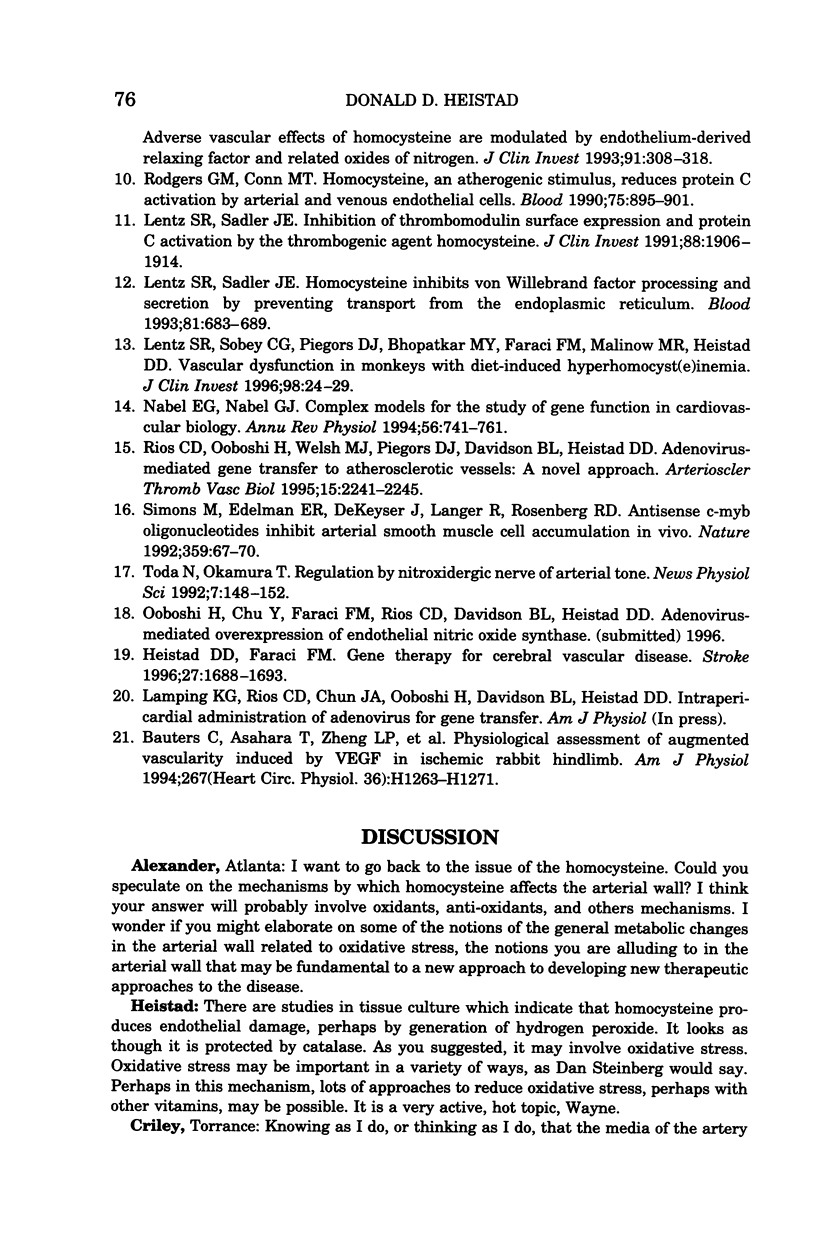
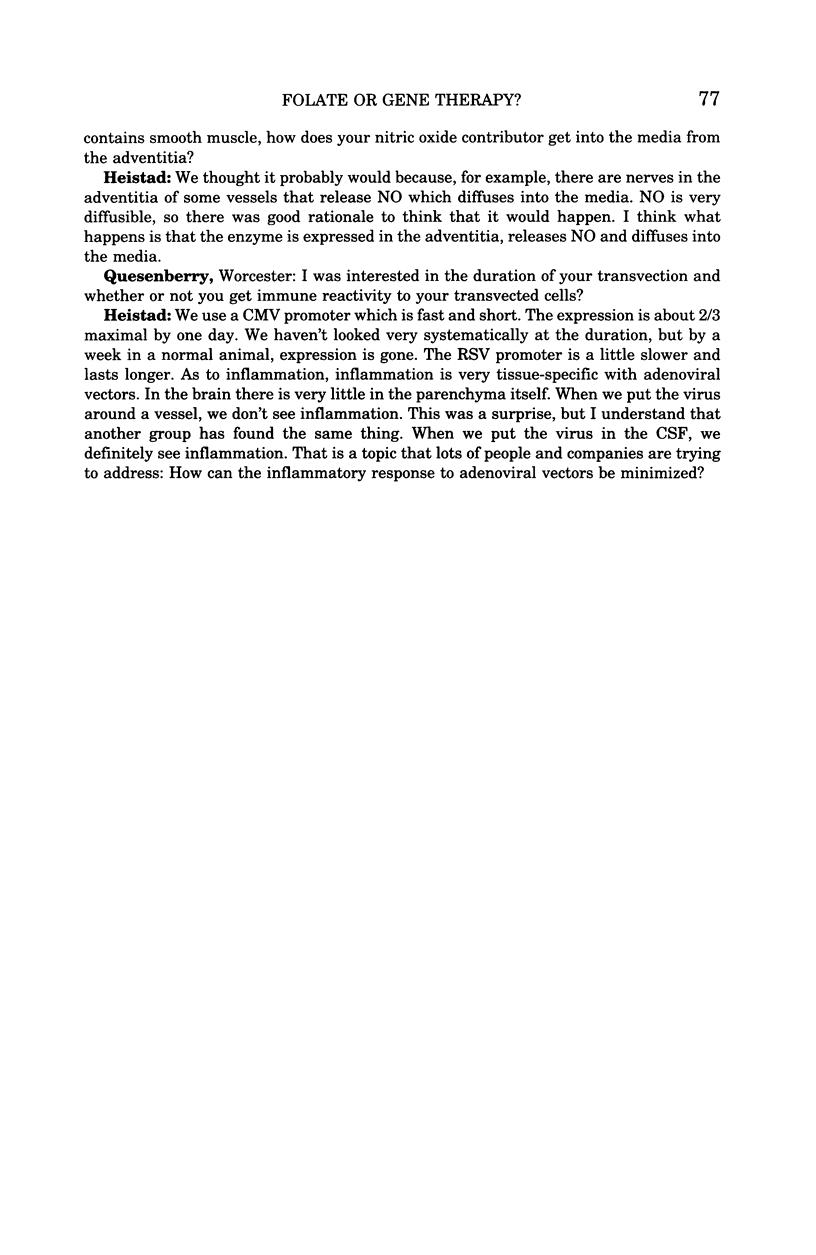
Images in this article
Selected References
These references are in PubMed. This may not be the complete list of references from this article.
- Bauters C., Asahara T., Zheng L. P., Takeshita S., Bunting S., Ferrara N., Symes J. F., Isner J. M. Physiological assessment of augmented vascularity induced by VEGF in ischemic rabbit hindlimb. Am J Physiol. 1994 Oct;267(4 Pt 2):H1263–H1271. doi: 10.1152/ajpheart.1994.267.4.H1263. [DOI] [PubMed] [Google Scholar]
- Boushey C. J., Beresford S. A., Omenn G. S., Motulsky A. G. A quantitative assessment of plasma homocysteine as a risk factor for vascular disease. Probable benefits of increasing folic acid intakes. JAMA. 1995 Oct 4;274(13):1049–1057. doi: 10.1001/jama.1995.03530130055028. [DOI] [PubMed] [Google Scholar]
- Harker L. A., Slichter S. J., Scott C. R., Ross R. Homocystinemia. Vascular injury and arterial thrombosis. N Engl J Med. 1974 Sep 12;291(11):537–543. doi: 10.1056/NEJM197409122911101. [DOI] [PubMed] [Google Scholar]
- Heistad D. D., Faraci F. M. Gene therapy for cerebral vascular disease. Stroke. 1996 Sep;27(9):1688–1693. doi: 10.1161/01.str.27.9.1688. [DOI] [PubMed] [Google Scholar]
- Lentz S. R., Sadler J. E. Homocysteine inhibits von Willebrand factor processing and secretion by preventing transport from the endoplasmic reticulum. Blood. 1993 Feb 1;81(3):683–689. [PubMed] [Google Scholar]
- Lentz S. R., Sadler J. E. Inhibition of thrombomodulin surface expression and protein C activation by the thrombogenic agent homocysteine. J Clin Invest. 1991 Dec;88(6):1906–1914. doi: 10.1172/JCI115514. [DOI] [PMC free article] [PubMed] [Google Scholar]
- Lentz S. R., Sobey C. G., Piegors D. J., Bhopatkar M. Y., Faraci F. M., Malinow M. R., Heistad D. D. Vascular dysfunction in monkeys with diet-induced hyperhomocyst(e)inemia. J Clin Invest. 1996 Jul 1;98(1):24–29. doi: 10.1172/JCI118771. [DOI] [PMC free article] [PubMed] [Google Scholar]
- Malinow M. R. Homocyst(e)ine and arterial occlusive diseases. J Intern Med. 1994 Dec;236(6):603–617. doi: 10.1111/j.1365-2796.1994.tb00854.x. [DOI] [PubMed] [Google Scholar]
- Mudd S. H., Skovby F., Levy H. L., Pettigrew K. D., Wilcken B., Pyeritz R. E., Andria G., Boers G. H., Bromberg I. L., Cerone R. The natural history of homocystinuria due to cystathionine beta-synthase deficiency. Am J Hum Genet. 1985 Jan;37(1):1–31. [PMC free article] [PubMed] [Google Scholar]
- Nabel E. G., Nabel G. J. Complex models for the study of gene function in cardiovascular biology. Annu Rev Physiol. 1994;56:741–761. doi: 10.1146/annurev.ph.56.030194.003521. [DOI] [PubMed] [Google Scholar]
- Rodgers G. M., Conn M. T. Homocysteine, an atherogenic stimulus, reduces protein C activation by arterial and venous endothelial cells. Blood. 1990 Feb 15;75(4):895–901. [PubMed] [Google Scholar]
- Ríos C. D., Ooboshi H., Piegors D., Davidson B. L., Heistad D. D. Adenovirus-mediated gene transfer to normal and atherosclerotic arteries. A novel approach. Arterioscler Thromb Vasc Biol. 1995 Dec;15(12):2241–2245. doi: 10.1161/01.atv.15.12.2241. [DOI] [PubMed] [Google Scholar]
- Selhub J., Jacques P. F., Bostom A. G., D'Agostino R. B., Wilson P. W., Belanger A. J., O'Leary D. H., Wolf P. A., Schaefer E. J., Rosenberg I. H. Association between plasma homocysteine concentrations and extracranial carotid-artery stenosis. N Engl J Med. 1995 Feb 2;332(5):286–291. doi: 10.1056/NEJM199502023320502. [DOI] [PubMed] [Google Scholar]
- Simons M., Edelman E. R., DeKeyser J. L., Langer R., Rosenberg R. D. Antisense c-myb oligonucleotides inhibit intimal arterial smooth muscle cell accumulation in vivo. Nature. 1992 Sep 3;359(6390):67–70. doi: 10.1038/359067a0. [DOI] [PubMed] [Google Scholar]
- Stamler J. S., Osborne J. A., Jaraki O., Rabbani L. E., Mullins M., Singel D., Loscalzo J. Adverse vascular effects of homocysteine are modulated by endothelium-derived relaxing factor and related oxides of nitrogen. J Clin Invest. 1993 Jan;91(1):308–318. doi: 10.1172/JCI116187. [DOI] [PMC free article] [PubMed] [Google Scholar]
- Stampfer M. J., Malinow M. R. Can lowering homocysteine levels reduce cardiovascular risk? N Engl J Med. 1995 Feb 2;332(5):328–329. doi: 10.1056/NEJM199502023320511. [DOI] [PubMed] [Google Scholar]
- Starkebaum G., Harlan J. M. Endothelial cell injury due to copper-catalyzed hydrogen peroxide generation from homocysteine. J Clin Invest. 1986 Apr;77(4):1370–1376. doi: 10.1172/JCI112442. [DOI] [PMC free article] [PubMed] [Google Scholar]
- Wall R. T., Harlan J. M., Harker L. A., Striker G. E. Homocysteine-induced endothelial cell injury in vitro: a model for the study of vascular injury. Thromb Res. 1980 Apr 1;18(1-2):113–121. doi: 10.1016/0049-3848(80)90175-9. [DOI] [PubMed] [Google Scholar]



